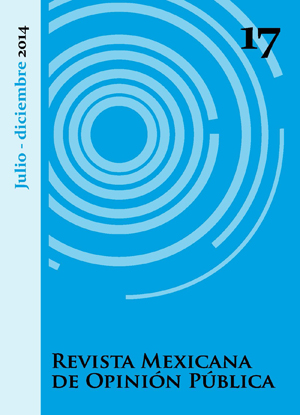Elecciones de 1988 en México: crisis del autoritarismo
Contenido principal del artículo
Resumen
Los comicios de 1988 han sido considerados por casi todos los actores y observadores políticos de México como el episodio clave del momento político que atraviesa el país en el fin de siglo. La elección federal de 1988, en más de un sentido, constituye una elección crítica que puede analizarse desde muchas perspectivas. En este artículo, enfocaremos ese proceso a partir de dos de ellas: la institucional y la electoral. Primero, analizaremos las elecciones de 1988 como un proceso institucionalmente regulado, es decir, contenido en un marco de leyes, regulaciones e instancias públicas que fijó los límites de las estrategias políticas disponibles de los actores y que de esa manera indujo determinados equilibrios. En particular, discutiremos algunos aspectos relevantes de la manera como las reglas de la competencia política electoral vigentes en 1988 contribuyeron, tanto a garantizar la victoria del PRI, como a producir la crisis del sistema de partidos.
Por otro lado, analizaremos algunos de los aspectos más sobresalientes de los cambios observados en los patrones generales de comportamiento electoral. Al respecto, postulamos que en la elección de 1988, se hizo evidente que los patrones de comportamiento del electorado que se habían observado durante muchos años se modificaron significativamente, al grado de que es posible hablar de un realineamiento electoral. Esto significa que no solamente presenciamos un cambio entre las principales variables del comportamiento electoral (participación y preferencia partidaria), sino, sobre todo, un cambio en la relación entre esos aspectos del comportamiento electoral y algunas de las más importantes características sociales y regionales del país.
Detalles del artículo
Citas en Dimensions Service

Revista Mexicana de Opinión Pública por Universidad Nacional Autónoma de México se distribuye bajo una Licencia Creative Commons Atribución-NoComercial-SinDerivar 4.0 Internacional.
Basada en una obra en http://revistas.unam.mx/index.php/rmop.
